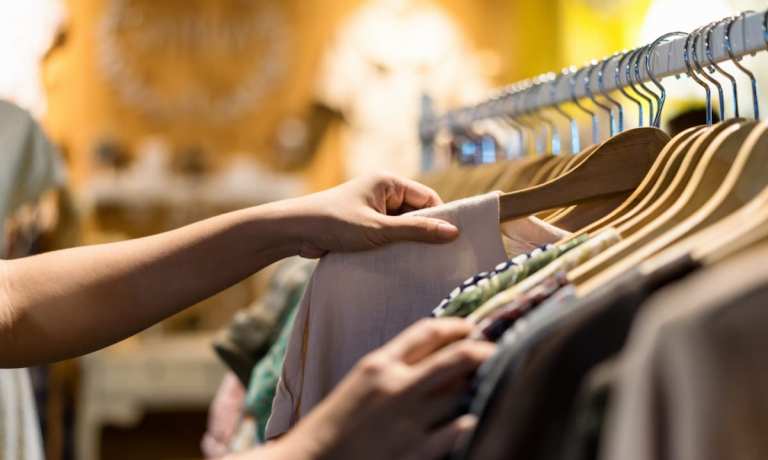From Resale To Rental, Apparel-Buying Undergoes Major Rethink

When Etsy announced its $1.6 billion acquisition of U.K.-based secondhand fashion reseller Depop last week, it was framed traditionally, as many sizable deals are: two like-minded companies coming together to enjoy the benefits of scale from their shared synergies and cultural values.
“We are simply thrilled to be adding Depop — what we believe to be the resale home for Gen Z consumers — to the Etsy family,” Etsy CEO Josh Silverman said.“We see significant opportunities for shared expertise and growth synergies across what will now be a tremendous ‘house of brands’ portfolio of individually distinct, and very special, eCommerce brands.”
However, for industry watchers and competitors in retail’s burgeoning resale category, the Etsy-Depop combination is anything but routine — whether you look at its scale, its demographics or its expected impact on existing brands that are still trying to figure out how to thrive and survive within this new world order.
“We feel that Etsy absorbing Depop is an important moment for luxury brands. Etsy is one of the best eCommerce companies in the world. They will scale Depop at the expense of the luxury brands,” said Joseph Einhorn, co-founder of Brooklyn-based startup The Archivist, which tracks and monitors global secondhand sales activity on over 150 resale sites around the world.
‘You Sell’ vs. ‘They Sell’
For example, Einhorn predicts that Etsy’s entry into customer acquisition auctions will see ad programs become more expensive as a result of this fresh new bidder.
“[Etsy is] extremely creative and productive at the bidding [process], and once customers have been acquired, they are merchandising in a multi-brand environment, which has ramifications beyond resale and will affect luxury’s ordinary business as well,” he said.
As he sees it, if luxury brands are to compete against big aggregators like Etsy-Depop, they will need to sell directly to consumers themselves, while also controlling the authenticity and pricing of their goods in the secondhand market.
“The Archivist platform enables premium brands to provide consumers with direct access to certified vintage goods in a brand-controlled environment,” said Einhorn. By effectively outsourcing the resale process, it will allow brands to do what they do best. “Consumers trust them for authenticity and quality, luxury brands can prosper in resale without price gouging and they have their physical stores to draw clients in too,” he added.
Everybody Getting In
A stream of resale announcements this year from some of the most powerful brands in the apparel business has only drawn further attention to the category, with names like Lululemon, Levi’s, Patagonia, Eileen Fisher and REI partnering with secondhand marketplace manager Trove to run their resale operations for them.
At the same time, Nike — the most sought-after sneaker brand that currently “dominates the charts” on all major secondhand footwear sites and marketplaces — has moved to bring some of this commerce in-house via its Nike Refurbished program that launched in April.
At the same, firms like Rent the Runway are also getting into the resale apparel market, with Co-founder Jennifer Hyman announcing last week that after 10 years in business, its customers can rent designer clothing in addition to purchasing the outfits — without a membership fee.
In another indication of the growing interest in this space, Rent the Runway is also reportedly looking to join the ranks of other publicly traded reCommerce platforms — such as The Real Real, ThredUP and Poshmark — via a possible IPO this year, reported to be worth approximately $1 billion.
Meanwhile, other luxury brands, such as Ralph Lauren, are also delving into new ways of moving more clothes at a fraction of the full retail price. The Lauren Look rental program, which was launched in March, allows customers to get four items via a $125 per month subscription that they can wear and return or keep forever.
And so while Etsy and Depop begin to digest their deal over the coming months, it is safe to say that the summer fashion surge is likely to see more new entrants coming on the scene to get a toehold with this category that has barely scratched the surface.